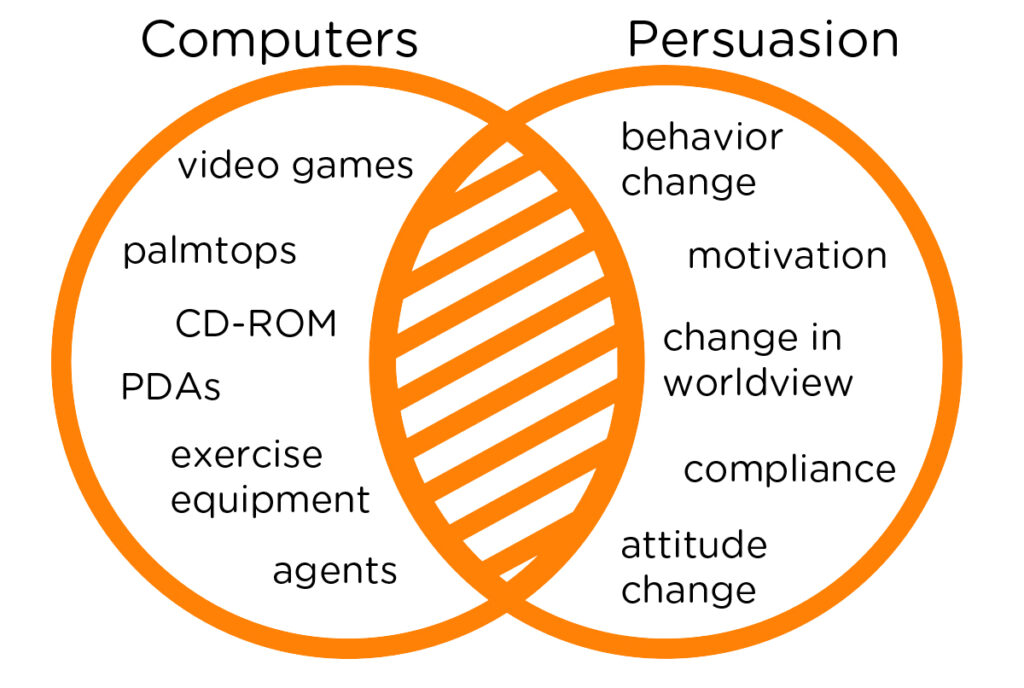
In the world of advertising, persuasive techniques are frequently used to capture our attention and influence our purchasing decisions. But have you ever stopped to consider the ethical implications behind these tactics? This article explores the ethical considerations involved when using persuasive techniques in advertising, shedding light on the potential impact they have on consumers and society as a whole. From manipulation to the use of misleading information, join us as we delve into the complex world of persuasive advertising and unravel the ethical considerations that lie beneath the surface.

The Importance of Ethical Considerations in Advertising
Advertising plays a major role in shaping public opinion, influencing consumer behavior, and driving economic growth. Therefore, it is crucial for advertisers to carefully consider the ethical implications of their strategies and tactics. This article will discuss the importance of ethical considerations in advertising, along with various areas where ethical concerns may arise.
Protecting Consumers from Harm
One of the primary ethical concerns in advertising is the protection of consumers from harm. Advertisers have a responsibility to ensure that their products or services do not pose any significant risks to consumers. This includes providing accurate and truthful information about the benefits and potential risks associated with their offerings.
Misleading or deceptive advertising practices can lead to harm, both physical and financial, for consumers. It is essential for advertisers to refrain from making false claims or misrepresenting their products in any way. By ensuring transparency and honesty in their advertising, marketers can protect consumers from making uninformed decisions that may have negative consequences.
Maintaining Trust and Credibility
Trust is the foundation of successful advertising. Consumers are more likely to engage with brands they trust and believe in. Therefore, maintaining trust and credibility is an ethical imperative for advertisers.
When advertisers resort to deceptive tactics or engage in misleading practices, they erode consumer trust. This can have long-lasting negative effects on brand reputation and customer loyalty. By prioritizing ethical considerations, advertisers can build and maintain strong relationships with their target audience.
Respecting Individual Autonomy
Respecting individual autonomy is another vital ethical consideration in advertising. Advertisers should avoid manipulating or coercing consumers into buying their products or services against their will. Instead, they should aim to empower individuals by providing them with accurate information, enabling them to make informed choices.
Manipulative techniques such as emotional and psychological manipulation undermine individual autonomy and can lead to buyer’s remorse or regret. By upholding ethical standards, advertisers empower consumers to exercise their freedom of choice, which fosters a healthier and more sustainable marketplace.
Deceptive Advertising and Misrepresentation
Deceptive advertising and misrepresentation pose significant ethical concerns in the advertising industry. Advertisers must be aware of the various forms of deceptive advertising and the ethical dilemmas they entail, as well as the legal implications they may face.
Types of Deceptive Advertising
Deceptive advertising can take several forms. Some common examples include false claims about a product’s benefits or performance, misleading comparisons to competitors, hidden fees or restrictions, and ambiguous or confusing statements. Advertisers must be cautious to avoid these practices to maintain their integrity.
The Ethical Dilemma
Deceptive advertising presents advertisers with an ethical dilemma. On one hand, they may be tempted to engage in misleading tactics to gain a competitive advantage or increase sales. On the other hand, doing so undermines consumer trust and violates ethical principles.
The decision to engage in deceptive advertising often boils down to short-term gains versus long-term consequences. Advertisers who prioritize ethical considerations recognize that building trust and credibility is a more sustainable approach that leads to long-term success.
The Legal Implications
Aside from the ethical concerns, deceptive advertising also carries legal implications. Regulatory bodies, such as the Federal Trade Commission (FTC) in the United States, have strict guidelines and regulations in place to protect consumers from deceptive practices.
Violations of these regulations can result in substantial fines and damage to a company’s reputation. Advertisers must be aware of the legal frameworks that govern their actions and ensure compliance to avoid legal consequences.
Manipulative Techniques in Advertising
Advertisers often employ manipulative techniques to influence consumer behavior. While these techniques can be effective in achieving marketing objectives, they raise ethical concerns that must be considered.
Emotional Manipulation
Emotional manipulation is a common and powerful technique used in advertising. By appealing to consumers’ emotions, advertisers seek to create a strong connection between their products or services and positive emotional experiences.
However, ethical concerns arise when advertisers exploit consumers’ vulnerabilities or manipulate their emotions for personal gain. Advertisers should strive to strike a balance between evoking emotions and ensuring that the emotional response is genuine and not artificially manufactured.
Psychological Manipulation
Psychological manipulation involves influencing consumers’ thoughts, beliefs, and behaviors through subtle techniques. Examples include using persuasive language, manipulating social proof, and creating artificial scarcity to induce a fear of missing out (FOMO).
While psychological manipulation can be effective, advertisers must be mindful of the ethical boundaries. Taking advantage of cognitive biases or exploiting psychological vulnerabilities of individuals raises concerns about informed consent and consumer autonomy.
Exploitative Techniques
Exploitative techniques involve targeting and exploiting vulnerable populations, such as children, elderly consumers, or low-income individuals. By taking advantage of their limited capacity to make informed decisions or their susceptibility to persuasive messaging, advertisers risk crossing ethical boundaries.
Advertisers should prioritize fairness and social responsibility by avoiding exploitative tactics. Treating vulnerable populations with respect and ensuring that advertising messages are appropriate and mindful of their unique needs and vulnerabilities is crucial.
Targeting Vulnerable Populations
Certain demographics, such as children, elderly consumers, and low-income individuals, are particularly susceptible to the influence of advertising. Ethical considerations arise when advertisers target and exploit these vulnerable populations.
Children and Advertising
Advertising to children requires careful ethical consideration. Children may lack the cognitive skills and critical thinking abilities to fully understand and evaluate advertising claims. Advertisers must take measures to ensure their messages are appropriate and do not manipulate or deceive young audiences.
Regulations and industry self-regulation play a crucial role in protecting children from inappropriate or manipulative advertising. Advertisers should follow guidelines that restrict advertising content, ensure accuracy, and respect children’s developmental stages.
Elderly Consumers
Elderly consumers may also be vulnerable to exploitative advertising practices due to factors such as cognitive decline, limited financial resources, or increased reliance on products or services. It is essential for advertisers to consider the ethical implications of targeting this demographic.
Respecting the autonomy and dignity of elderly consumers requires providing transparent information, avoiding high-pressure sales tactics, and considering the unique needs and preferences of this population. Advertisers should prioritize nurturing long-term relationships based on trust and understanding.
Low-Income Individuals
Advertising that targets low-income individuals raises ethical concerns related to socio-economic disparities. Advertisers must ensure that their messages do not exploit or reinforce negative stereotypes about individuals with limited financial resources.
Promoting responsible consumption, affordability, and inclusivity should be key considerations when advertising to low-income individuals. Advertisers should focus on empowering this demographic by providing accurate and relevant information to help them make informed decisions and improve their quality of life.

Invasion of Privacy and Data Collection
With the rise of technology and digital advertising, concerns about the invasion of privacy and improper data collection have become prominent ethical issues in advertising.
Tracking Consumer Behavior
Advertisers utilize various tracking technologies to collect data on consumer behavior, preferences, and interests. While this can help personalize advertising and improve targeting, it also raises concerns about consumer privacy and autonomy.
It is crucial for advertisers to be transparent about the data collection practices they employ and to obtain informed consent from consumers. Respecting consumer privacy rights should always be a top priority to maintain ethical standards and trust.
Ethical Data Collection
Ethical data collection involves collecting and using consumer data in a responsible and transparent manner. Advertisers must ensure that they comply with privacy laws and regulations and take steps to protect consumer data from breaches or unauthorized access.
By implementing robust data protection measures and providing consumers with options to control the collection and use of their data, advertisers demonstrate ethical responsibility and respect for privacy.
Informed Consent
Obtaining informed consent from consumers is a fundamental ethical consideration when it comes to data collection. Advertisers should provide clear and easily understandable information about the purpose of data collection, the types of data collected, and how it will be used.
Consent should be specifically obtained for each data collection activity, and consumers should have the option to opt out or withdraw their consent at any time. By ensuring informed consent, advertisers empower consumers to have control over their personal information and promote ethical data practices.
Stereotyping and Offending Cultural Sensibilities
Advertising has the power to shape societal norms and perceptions. Ethical concerns arise when advertisers reinforce harmful stereotypes or engage in cultural appropriation.
Gender Stereotypes
Advertising has historically perpetuated gender stereotypes by portraying women in stereotypical roles or objectifying them. Advertisers must be mindful of the impact their messages can have on gender equality and societal norms.
By challenging gender stereotypes and promoting inclusivity, advertisers can contribute to a more equitable and respectful society. Ethical considerations should guide the creation of advertisements that celebrate diversity and avoid perpetuating harmful gender biases.
Racial and Ethnic Stereotypes
Racial and ethnic stereotypes in advertising can perpetuate harmful biases and contribute to discrimination. Advertisers have a responsibility to avoid reinforcing stereotypes and to portray diverse racial and ethnic groups authentically and respectfully.
Cultural sensitivity and inclusivity should be integral to advertising strategies, ensuring that messages resonate with diverse audiences and promote understanding and acceptance. Ethical advertising embraces cultural diversity and contributes to a more inclusive society.
Cultural Appropriation
Cultural appropriation occurs when elements of a particular culture are adopted by another without proper understanding or respect. Advertisers must be cautious not to appropriate cultural symbols, rituals, or traditions for commercial purposes without due consideration for their cultural significance.
Respecting cultural boundaries and collaborating with cultural consultants or experts can help ensure that advertising messages are culturally sensitive and accurate. Advertisers should prioritize ethical creativity and avoid appropriating or misrepresenting cultural identities.

Environmental Impact of Advertising
Advertising can have a significant environmental impact. Ethical considerations in advertising include minimizing waste, promoting sustainable practices, and avoiding deceptive environmental claims.
Greenwashing
Greenwashing refers to the misleading or exaggerated claims made by advertisers about the environmental benefits of their products or services. This unethical practice can mislead consumers and undermine genuine efforts towards sustainability.
Adopting transparent and honest communication about a company’s environmental practices is crucial to maintaining ethical standards. Advertisers should strive to promote verifiable green practices and ensure that environmental claims are substantiated.
Waste Generation
Print advertising, packaging materials, and promotional merchandise contribute to waste generation. Advertisers can reduce their environmental footprint by adopting sustainable printing practices, minimizing unnecessary packaging, and using eco-friendly materials.
Additionally, digital advertising offers opportunities to reduce waste and carbon emissions associated with traditional advertising methods. Transitioning towards digital platforms can contribute to a more sustainable advertising industry.
Sustainable Practices
Embracing sustainable practices is not only ethical but also beneficial for advertisers. By adopting eco-friendly initiatives, such as using renewable energy, reducing water usage, or implementing recycling programs, advertisers can demonstrate their commitment to environmental responsibility.
Promoting sustainability in advertising can also attract consumers who prioritize eco-friendly products and services. Ethical considerations align with consumer demand for environmentally conscious brands, leading to a win-win situation for both advertisers and consumers.
The Role of Consumer Education and Empowerment
Empowering consumers through education and transparency is crucial for promoting ethical advertising practices. By providing consumers with accurate and relevant information, advertisers can foster trust and empower individuals to make informed decisions.
Promoting Transparency
Transparency in advertising involves providing clear and accurate information about products, services, and company practices. Advertisers have a responsibility to ensure that their claims are substantiated and their advertising materials are truthful and unbiased.
By embracing transparency, advertisers build credibility and establish themselves as trustworthy sources of information. Transparency also enables consumers to make well-informed choices, fostering a healthier marketplace.
Empowering Consumers
Consumer empowerment involves enabling individuals to assert their rights, make informed decisions, and voice their concerns. Ethical advertisers recognize the importance of empowering consumers and prioritize initiatives that promote consumer empowerment.
By providing consumers with comprehensive information, clear terms and conditions, and avenues for feedback and complaints, advertisers can empower individuals to engage meaningfully and confidently in the marketplace.
Educating the Public
Advertisers can play a crucial role in educating the public about their rights and responsibilities as consumers. Ethical advertising involves promoting consumer education initiatives and providing resources that help consumers navigate the marketplace.
By raising awareness about deceptive advertising practices, promoting financial literacy, and supporting initiatives that educate individuals about their choices, advertisers contribute to a more educated and empowered consumer base.

Industry Self-Regulation and Government Oversight
Ensuring ethical advertising practices requires a combination of industry self-regulation and government oversight. Together, these mechanisms form the foundation for maintaining ethical standards in the advertising industry.
Advertising Codes of Conduct
Advertising codes of conduct establish ethical guidelines and practices that advertisers should follow. These industry-enforced standards outline the expectations for responsible advertising and guide businesses in upholding ethical principles.
Adherence to advertising codes of conduct demonstrates an advertiser’s commitment to ethical practices and provides a framework for addressing ethical concerns in a proactive and transparent manner.
Regulatory Bodies
Government regulatory bodies, such as the FTC in the United States or Advertising Standards Authority (ASA) in the United Kingdom, play a vital role in enforcing ethical advertising standards. These bodies monitor advertising practices, investigate complaints, and take appropriate actions against violators.
By enforcing regulations and holding advertisers accountable for their actions, regulatory bodies contribute to a level playing field and protect consumers from deceptive or harmful advertising practices.
Enforcement and Penalties
Enforcement of ethical advertising standards often involves imposing penalties on advertisers who violate regulations or engage in unethical practices. Penalties can include fines, sanctions, removal of advertising materials, or even legal action.
The fear of enforcement and penalties acts as a deterrent, discouraging advertisers from engaging in unethical practices. Effective enforcement mechanisms not only protect consumers but also ensure fair competition and maintain the integrity of the advertising industry.
Balancing Persuasion and Ethical Responsibility
Advertisers are tasked with the challenge of achieving their marketing goals while upholding ethical responsibilities. Balancing persuasion and ethical responsibility involves careful planning, collaboration with ethical agencies, and ensuring public accountability.
Campaign Planning and Strategy
Ethical considerations should be integrated into the planning and strategy of advertising campaigns from the outset. Advertisers should conduct a thorough analysis of potential ethical concerns and develop strategies that prioritize consumer welfare and social responsibility.
A well-designed campaign that is sensitive to ethical considerations enhances brand reputation, builds trust, and contributes to positive social impact.
Collaboration with Ethical Agencies
Collaborating with ethical agencies and experts can provide invaluable guidance and support in ensuring ethical advertising practices. These agencies can offer advice on ethical considerations, assist in assessing and mitigating potential risks, and help develop responsible advertising messages.
By engaging with ethical agencies, advertisers demonstrate their commitment to ethical principles and gain access to resources and expertise that can enhance the ethical integrity of their campaigns.
Public Accountability
Public accountability is a crucial aspect of ethical advertising. Advertisers should be transparent about their practices, engage in open dialogue with consumers, and be responsive to concerns or feedback.
By actively seeking feedback, addressing consumer concerns, and taking swift action when ethical lapses occur, advertisers demonstrate their dedication to continuous improvement and ethical integrity.
In conclusion, ethical considerations are of paramount importance in advertising. Advertisers have a responsibility to protect consumers from harm, maintain trust and credibility, respect individual autonomy, and promote transparency, empowerment, and education. By addressing deceptive advertising, manipulative techniques, targeting vulnerable populations, invasion of privacy, stereotyping, environmental impact, and by balancing persuasion with ethical responsibility, advertisers can create a more ethical and socially responsible advertising industry. It is through collaboration, industry self-regulation, and government oversight that ethical standards are upheld, ensuring a fair and trustworthy marketplace for all.

